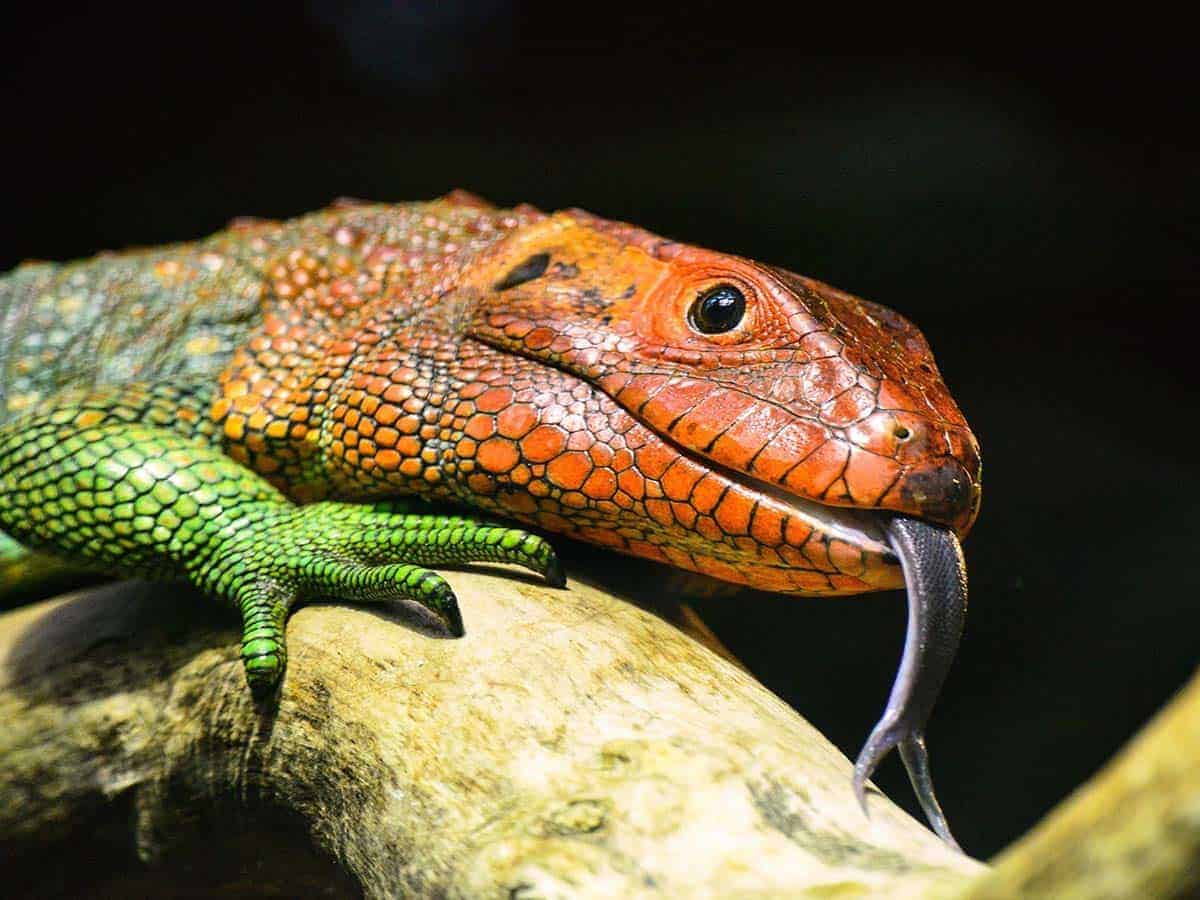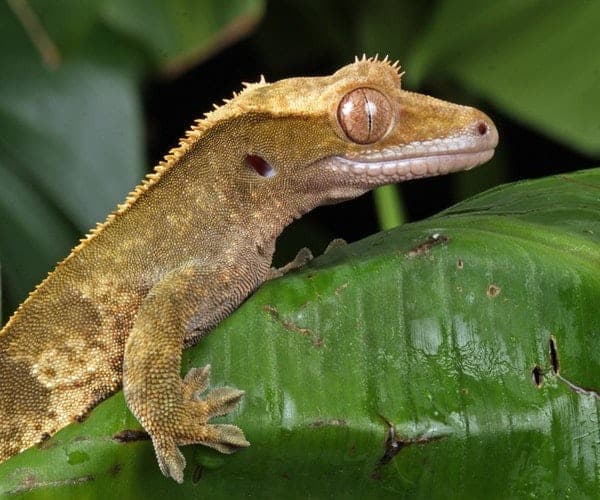
When you own a pet, you will be very much concerned about all that has to do with your pet. You will strive to not just make life a lot easier for the pet but also make yourself a better pet owner. If you are a lizard owner, one of the questions you will have to confront sooner than later is this:
How long can a lizard live without food?
Depending on factors like age, size and the health status of a lizard, it can go without food for as long as two months which translates to eight weeks. For age, more mature lizards are able to adapt better to lack of food compared with the baby lizards.
For size, bigger lizards are also able to survive the absence of food because their massive size means they have more fat deposits. More fat deposits in the system mean the body has a good source of energy for the metabolic processes during the period of starvation. And talking of the health status, the healthier a lizard is, the longer it can withstand food deprivation. Lizards that are ill or sick or have their immune systems depressed for whatever reasons will find it more difficult to cope with lack of food when compared with the agile and healthy ones.
Why Will A Lizard Live Without Food?
As a pet owner, you may be wondering why a lizard will go without food when you are not starving it or depriving it of food. Well, the interesting answer to this question is that there are several reasons or factors that can make a lizard go without food. You will just notice one day that your lizard has been avoiding food and all meals passed to it are rejected. These factors are as follows:
Sickness
Falling sick is one of the major reasons why a lizard can lose appetite all of a sudden or over time. If you notice that there are some disturbing signs and symptoms with your lizard alongside the loss of appetite, then the time has come for you to get professional help for your lizard.
According to Reptile Maniac, some of the most common illnesses found in lizards include the following: Salmonella, Botulism, Campylobacteria, and Leptospirosis. Any of these illnesses can lead to a lack of appetite as well as various other symptoms including diarrhea, fever, headache, and stomach cramps. If your lizard is displaying any of these symptoms, you should promptly seek a veterinarian.
Do not wait for weeks before taking action because you may not know the nature of the sickness affecting the lizard. If your lizard stops eating because of an illness then there is a high chance the sickness is a serious one and you should call your veterinary doctor right away. Of all the factors responsible for the decrease in appetite of lizards, sickness is a rare but significant one.
Stress

Another major factor that can totally decrease the interest of your lizard in food is if it is subjected to a lot of stress. Now, this stress can come in different ways. It could be that too many humans are handling it for too long. It could be that the temperature is too hot or too cold. It can even be that the air is too humid or too dry. One or more of these factors end up piling up stress on the creature.
In such cases, all that needs to be done is just to remove the factor contributing to the stress and your lizard resumes normal eating patterns. Temperature is one factor that can really cause stress for the lizards. If the heat is extreme, they will be affected. But that is not to say that their cages should be ice cold because lizards are cold-blooded or ectothermic, just like other reptiles. What this simply implies is that they cannot generate heat in their own bodies and depend on external heat to carry out their metabolic activities.
So, some degree of external heat is needed for the lizard to be able to maintain its appetite and even digest the food eaten. So if there is extreme heat or extreme cold, it will definitely affect the appetite. For example, if the cage is extremely cold, the lizard will not have the urge to eat as the metabolic rate will fall remarkably.
In addition to all the factors that can contribute to stress above, there is another factor that can be considered a stressor and it is an interesting one. In a case where the cage is overcrowded with other lizards, it can also lead to stressful conditions. Interestingly, your lizard can also be stressed if it does not have a lizard to relate with as a mate while some other lizards are totally perfect in a solitary condition. You need to understand what works best for your lizard.
New Environment
There are cases when you have to change the environment of the lizard. It can be getting a new cage or terrarium in another area of the house. It can even be a total relocation from one city to another. It can be movement from one geographical region to another or even something as simple as replacing the materials used in constructing the cage or terrarium.
All these changes regarding the environment can disorient the lizard so much so that it will affect its appetite and urge to consume anything. In most cases, the appetite normalizes with time as the lizard settles in and adapts to the new location. However, if the loss of appetite persists, then that is the time to get professional medical services.
New Diet
As an owner, you might have heard of a new interesting diet mix for lizards and out of excitement, you try to introduce the same to your lizard. You do so with the hope of seeing your lizard take to the new diet. But to your surprise, the lizard ends up not just being turned off by the new meal but ends up rejecting all types of foods.
Lizards are known for being very uncooperative when introducing some types of meals. Many owners often express frustration at this behavior of their little pets but that is how lizards are and there is little you can do to change it unless leave them until they feel like consuming what you have presented to them.
Brumation
For those who may not be too familiar with this term, brumation is the condition in which lizards and other cold-blooded animals of the reptile family enter a state of hibernation. They often do this during brutal winters or when the environment is just too cold for them.
As pointed out in the section earlier, lizards are cold-blooded meaning they do not have the ability to control their body’s temperature the way warm-blooded animals like us can do. So, because of this, they have to be entirely dependent on the environment for temperature regulation. Over time, these reptiles have managed to evolve and come up with some really interesting ways to adapt to changing environmental temperature.
Brumation is one of such ways they ensure survival when the environment gets really cold. When a lizard enters the brumation state, it becomes very sluggish and can even stay in one position throughout the entire cold season. This way, the metabolic rates in their body are close to zero, the energy use is near zero and they do not have to even eat anything. It is a survival tactic and one that involves a remarkable decrease in their appetite or even going without food totally.
Noise and Vibration
This can be considered an environmental pollutant for not just human beings alone but also lizards. The area where the cage or terrarium is kept should be as quiet as possible. The cage should also not be subjected to sudden and violent shaking or vibration in any form. It is easy to cause disorientation in the lizard and thus leading to a suppression of appetite.
How Can A Lizard Survive Without Food?
As hinted at in the sections earlier, it is possible for a lizard to last for as long as two months without food. Some people genuinely wonder how this is possible. Well, it all boils down to the physiology of the lizard and how the body functions. When there is a lack of food or if the appetite is suppressed for whatever reason, the body of the lizard can adapt in several ways.
One of these is for the metabolic rates of the body to slow down to almost zero. That way, very little energy is used. Another way is that the body begins to draw on the fat reserves as a substrate to generate energy during catabolic processes. By a combination of these adaptations, a lizard can go that long without adequate food.
Conclusion
Lizards can weeks without food. However, there are several factors that are responsible for this to even happen in the first place. As a pet owner, you have to pay close attention to the dietary pattern and behavior of your lizard. In doing so, you are able to quickly notice changes and act on time in the best interest of your beloved pet. By following the guidelines outlined in this piece, there will never be a situation where your lizard will starve to death.
You May Like These Articles As Well:








